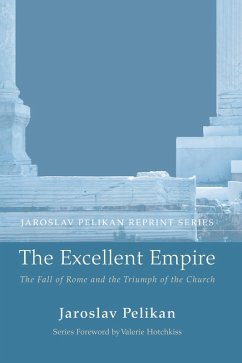This remarkable account by an award-winning historian details the responses to the fall of Rome by the church fathers, who set the pattern for interpreting this momentous event for all succeeding centuries. "To speak about the decline and fall of the Roman empire as 'the social triumph of the ancient church' is to look at the events associated with that 'memorable revolution' . . . through the eyes of the victors," writes the author. "The thoroughness of the victors has often seen to it that there remains no other way for us to view those events. Not only are we--for this period as for so many others throughout most of human history--denied access to the mind of the common people as they watched this history in the making, such that we are forced to depend on the documents provided by various of the elites of the fourth and fifth centuries; but among the documents of those elites, only some have been permitted to survive." Jerome, Christian humanist and translator of the Bible into Latin, represents an apocalyptic view of the crisis. Eusebius, court theologian and founder of church history, saw the fall of Rome as the sign of a new order, the "Christian Empire." And Augustine, fountainhead of much of Western thought during the millennium that followed, used it as the basis for his City of God. The unifying theme in this historical panorama is the final revisionist view of the fall by its greatest historian, Edward Gibbon. All of these interpretations of the fall of Rome continue to live today and deeply influence our understanding of Western culture.
Dieser Download kann aus rechtlichen Gründen nur mit Rechnungsadresse in A, D ausgeliefert werden.









